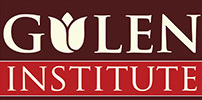“The Syrian revolution: where is it headed?”
University of Houston – Honors College
April 30, 2012
Joshua Landis, Director of the Center for Middle East Studies at the Univerity of Oklahoma, offered a perceptive analysis of Syria’s current conflict at the Gulen Institute’s Lecture Series. “The Syrian regime is doomed,” he said, “but it will last for longer than people think.” Assad’s Alawite regime is one the last minoritarian governments in the region, with the Alawites constituting only 12% of Syria’s population. As such, it cannot hope to survive a popular demand for democracy. But Landis observed that this minority status gives the regime a particular resiliency. Assad has depended heavily on sectarian and family loyalty in consolidating his authority, and as a result, the Syrian army has remained loyal to the president throughout the popular uprising.
This poses a clear challenge to the opposition and ensures that the ensuing conflict will be protracted and costly. Landis emphasized the difference between the situation in Syria and the uprisings of the Arab Spring. He argued that unlike Egypt and Tunisia — where protesters could afford to be disorganized because the military oversaw the pragmatics of governmental transition — political change in Syria will require a truly cohesive, grassroots revolution.
But the current Syrian opposition forces are disorganized and heavily divided. Local brigades organize on YouTube and attack local targets without any coordination. And according to Landis, Syria has never had a strong sense of national political community. Many of Syria’s minority communities distrust each other, making it difficult for the opposition forces to unify. Until a leader emerges from within the battlefields of Syria who is capable of consolidating rebel armies and articulating real political and economic alternatives, Landis doubted that the efforts of the exiled Syrian National Council or foreign governments will be able to catalyze the necessary unification.
Landis also expressed his doubts that the international community would intervene militarily. Syria is a fundamentally poor country, and the cost of intervention is too high. Moreover, in the wake of Iraq and Afghanistan, it is no longer clear whether foreign intervention can actually stop the killing. “There isn’t a good model for establishing a national political community that solves the problems between religious communities,” he mused. Instead, Landis somberly concluded that the opposition forces must prevail against the Assad regime in what is shaping up to be a long and costly war.
Speaker Bio:
Joshua Landis teaches modern Middle Eastern history and politics as Associate Professor of Middle Eastern Studies at the University of Oklahoma and is Director of the Center for Middle East Studies there. He also writes “Syria Comment,” a daily newsletter on Syrian politics that attracts some 3,000 readers a day. It is widely read by officials in Washington, Europe and Syria. Dr. Landis regularly travels to Washington DC to consult with the State Department and other government agencies.
He is a frequent analyst on TV and radio. Most recently he has appeared on the Jim Lehrer News Hour, Charlie Rose Show, CNN, Fox News, and has been widely quoted in the New York Times, Wall Street Journal, Washington Post, LA Times, and comments frequently for NPR and BBC radio. He has spoken at the Brookings Institute, USIP, Middle East Institute, and Council on Foreign Relations.

